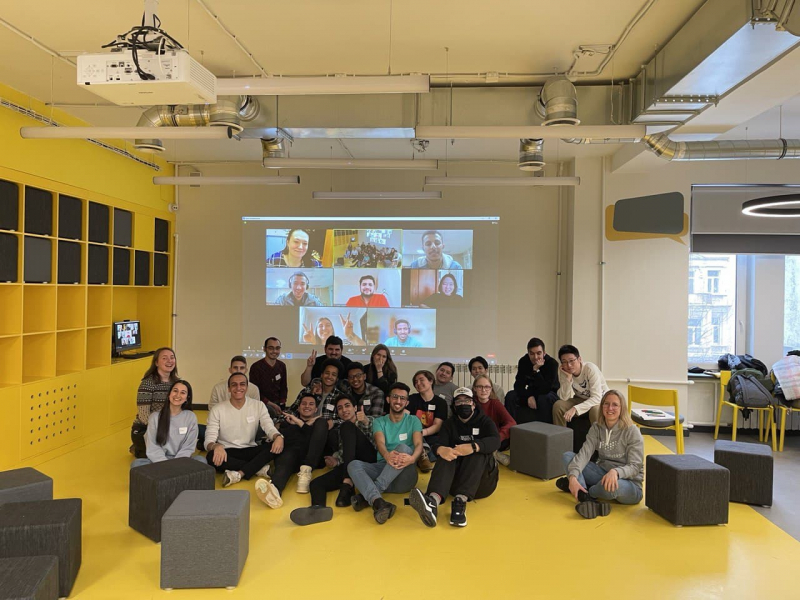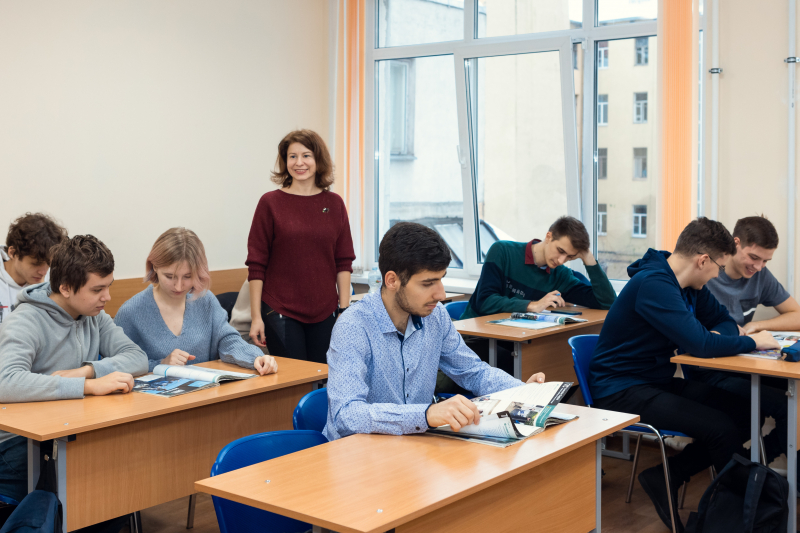Mohamed Azab, Egypt
Mohamed came to Russia to pursue his Master’s degree in information security. As a native Arabic speaker with extensive knowledge of English and German, he believes that desire and enthusiasm are key prerequisites for learning new languages. When asked why he decided to learn Russian, he gives five reasons.
“First, it is the best way for me to keep in touch with professors and colleagues so I can get the most out of my learning process at the university. Second, it helps me navigate daily activities and makes my life easier. Third, I love experiencing Russian culture and enjoy the company of locals. Fourth, I am a huge admirer of the works of Nikolai Gogol, Alexander Pushkin, Fyodor Dostoevsky, and Anton Chekhov. And fifth, Arabic and Russian have many common rules and similar logic in terms of language structure,” he says.
Here are some tips from Mohamed:
-
The main reference I use is the website of the Russia Today (RT) channel, where all grammar, vocabulary, and dialogs are explained fully in Arabic. There’s also a similar website for English speakers.
-
For YouTube channels, I mainly focus on two of them. One is the Russian channel Real Russian Club. On this channel, I learn about grammar, reading, and speaking playlists. The second one is Easy Russian: here you can find a lot of short conversations between Russian people.
-
To improve my listening skills, I listen to Russian podcasts – even if I don’t understand anything. The main idea is to make your ears get used to the tone of the words so at some point you will be able to understand Russian speakers. I mostly listen to a podcast called Comprehensible Russian Podcast Learn Russian with Max.
-
To improve my reading, I use a book called Поговорите по-русски (Talk in Russian). And to improve my writing, I write out every text I read from it.
-
Finally, I use the language as often as I can, even when I’m not studying. I just bring a notebook and start writing while listening to some music and after two or three hours I am surprised with how much I am able to achieve.

Credit: Artem Beliaikin on Unsplash
Prince Odinaka, Nigeria
Prince is a student of the Foundation Program here at ITMO. Currently, his main focus is on learning Russian itself to then acquire his Bachelor’s degree. So far, he describes his experience of learning the language as “It’s been nothing but fun!” He admits that besides the joy of mastering a new language, there are also some challenges he faces.
“Of course, it wasn’t all roses. I believed I had already mastered Russian when I learned my first two cases, some verbs, and some adjectives to spice things up. In fact, I remember trying to read some Russian literature. You could imagine the stark reality that hit me when I discovered there were four more cases to learn – each with their own specific function,” he shares.
Here are some general life hacks from Prince:
-
Find a textbook that can act as a structured guideline. Luckily, that’s what school’s for! I enjoy using the RFL (Russian as a foreign language – ed.) website – it has so much information for any language-related questions you may have.
-
Of course, you should make sure to complete all your assignments and tests. They help check how much you know and where you need some help. If, like me, you have troubles with Russian cases, find some apps and exercises online. They’re specifically designed for you to remember the endings associated with the cases and the situations they are applied in.
-
Don’t just read, try to speak, too. I still remember some minutes before the New Year when I was interviewed by the local news IN RUSSIAN! I made a lot of grammatical errors, but the experience helped me get out there and think on my feet (PS: I never watched that newspiece afterwards).
-
When starting off, you can make as many grammatical errors as you want – the important thing is to put yourself in situations where you’re forced to think. Like with any other language, the key to mastering Russian is repetition and practice.
-
Get a small handy notebook you can take everywhere with you. Write down new words in Russian and their meaning in your native language. Then, try to use the new words every time (but remember to use the right case!).

Credit: Element5 Digital on Unsplash
Bassel Alshawareb, Syria
Currently studying at the Foundation Program, Bassel plans to continue his education at ITMO’s Faculty of Control Systems and Robotics. To enhance his expertise in Russian, he’s researching techniques for learning Russian which he’ll soon present at the Congress of Young Scientists at ITMO.
Here are some resources from Bassel:
-
For beginners, I can suggest YouTube channels like Amazing Russian – this was my favorite for learning grammar. And there was also another favorite that I used to improve my vocabulary: Russian with Nastya. I also watch Russian with Max, Russian with Anastasia, and Tatiana Klimova’s YouTube channel.
-
I used the Tandem app. It gave me a lot of motivation, but I only used it for three weeks and then went on to meet people in person at ITMO’s Russian Speaking Club. I also play Mafia in Russian with people I met on Tandem.

ITMO's Russian Speaking Club. Credit: vk.com/itmo_speaking_club
To provide you with some professional insight in addition to the abovementioned tips, we asked one of our teachers of Russian at ITMO, Svetlana Dorofeeva, to share her recommendations on apps and reliable resources to help you learn the language. She suggested FluentU as an interactive way to practice listening, reading, and vocab recall, and such apps as LinguaLeo, Busuu, Clozemaster, and Memrise for learning vocabulary and grammar. She also recommended Интерактивный диктант (Interactive spelling test – Ed.) to test and practice your listening and writing skills, TextoLogia.ru for in-depth learning of the Russian language, Грамота.ру, a comprehensive online dictionary of the Russian language, and Best-language.ru as a self-education tool.
Read more stories from and about international students at ITMO here!




